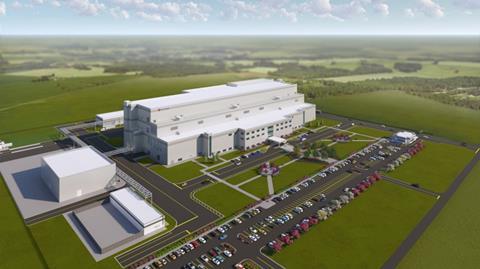GM has signed a long-term contract with LG Chem worth 25 trillion Korean won ($18.7 billion) for the localised supply of more than 500,000 tons of cathode material in support of the carmaker’s electric vehicle (EV) production in the US
The supply contract will run between 2026 and 2035, with enough cathode material supplied over that time to power 5m EVs. LG Chem said it will use its cathode plant in Tennessee as a production hub for the global battery material market, supplying nickel, cobalt, manganese and aluminium.

The latest deal with GM builds on an agreement signed with LG Chem in July, 2022 will strengthen local EV battery and EV production in North America. LG Chem said it intends to utilise its local supply chain to ensure that customers, including GM, can meet the EV subsidy criteria set by the US Inflation Reduction Act (IRA).
“This contract builds on GM’s commitment to create a strong, sustainable battery EV supply chain to support our fast-growing EV production needs,” said Jeff Morrison, GM’s vice-president of global purchasing and supply chain.” Importantly, this work with LG Chem will happen in Tennessee and strengthens the North American supply chain at a critical time for the industry.”
Cathode materials produced in LG Chem’s Tennessee plant are expected to be primarily used by Ultium Cells, a joint venture between GM AND LG Energy Solution first announced in 2019. In 2022 the US Department of Energy (DoE) confirmed a $2.5 billion loan for the Ultium Cells battery joint venture. The money is going toward construction costs on three battery factories, including the Tennessee plant and two others respectively in Michigan and Ohio, that will supply GM’s EV assembly lines in North America.
“By strengthening our strategic cooperation with GM, we will jointly lead the North American EV market to a sustainable future,” said LG Chem’s CEO, Shin Hak-cheol. “We aim to create unique customer value through world-class productivity and the expansion of our global production bases.”
LG Chem began assembly on the Tennessee materials plant in December last year. It will be North America’s largest cathode plant, with an annual production capacity of 60,000 tons. In the long-term the company aims to advance its engineering technology of the calcination process and hit annual production capacity of 10,000 tons per line.






































No comments yet